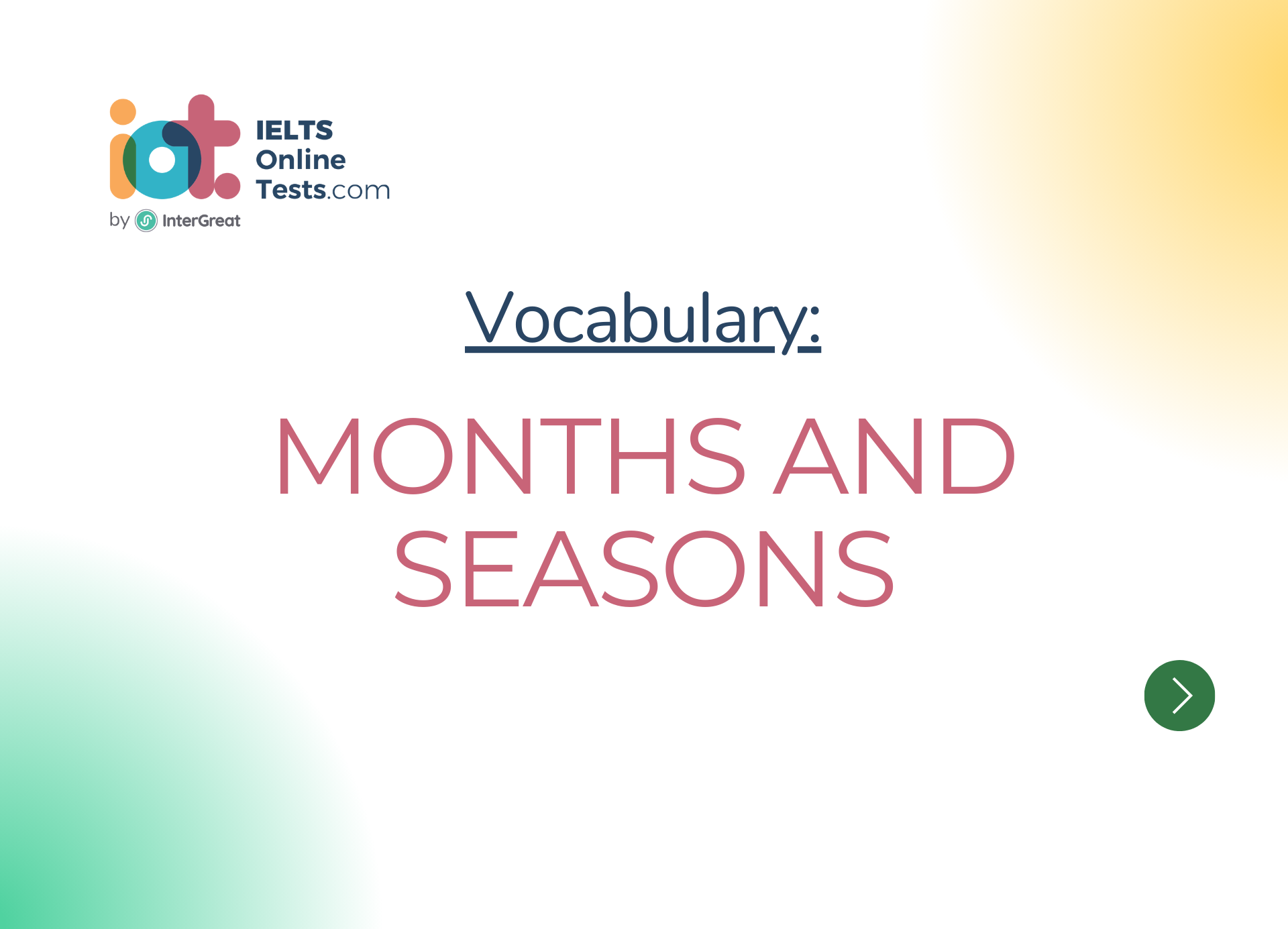
Months and seasons
Here's a lesson on vocabulary related to "Months and Seasons" for the IELTS band score 3.0-4.5:
I. Months of the Year:
January: The first month of the year.
February: The second month of the year.
March: The third month of the year.
April: The fourth month of the year.
May: The fifth month of the year.
June: The sixth month of the year.
July: The seventh month of the year.
August: The eighth month of the year.
September: The ninth month of the year.
October: The tenth month of the year.
November: The eleventh month of the year.
December: The twelfth month of the year.
II. Seasons:
Spring: The season between winter and summer when flowers bloom and temperatures begin to rise.
Summer: The warmest season of the year, characterized by longer days and higher temperatures.
Autumn/Fall: The season between summer and winter when leaves change color and temperatures cool down.
Winter: The coldest season of the year, characterized by shorter days and lower temperatures.
III. Weather and Activities:
Rainy season: A period of the year when rainfall is more frequent.
Snowy season: A period of the year when snowfall occurs.
Harvest season: The time when crops are gathered from the fields.
Vacation season: A period when many people take time off from work or school for holidays or trips.
Festive season: A period associated with celebrations and holidays, such as Christmas and New Year.
IV. Holidays and Observances:
New Year's Day: January 1st, the first day of the new year.
Valentine's Day: February 14th, a day to celebrate love and affection.
Easter: A Christian holiday celebrating the resurrection of Jesus Christ, usually in March or April.
Halloween: October 31st, a holiday associated with costumes and trick-or-treating.
Christmas: December 25th, a holiday commemorating the birth of Jesus Christ.
Remember to practice using these vocabulary words in sentences and conversations to improve your understanding and fluency in English.




